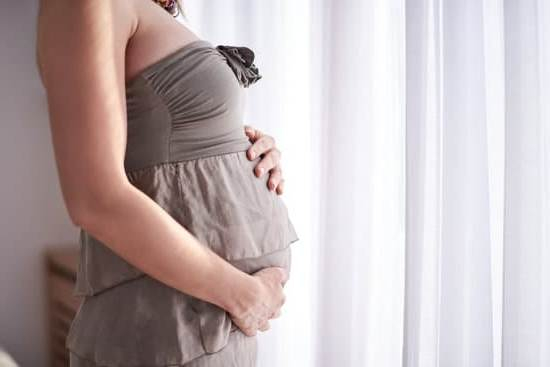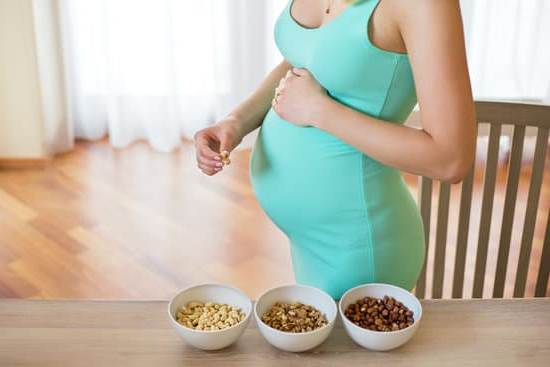The third week of pregnancy marks a crucial stage in a woman’s journey towards motherhood. During this time, the fertilized egg implants itself into the uterine lining, setting the stage for rapid development in the coming weeks.
As expectant mothers navigate this early phase of pregnancy, it’s essential to be aware of the subtle yet significant changes taking place within their bodies. In this article, we delve into what are pregnancy symptoms at 3 weeks to help women better understand and cope with this transformative period.
At 3 weeks pregnant, many women may not even be aware that they have conceived yet. However, some early signs of pregnancy may already be manifesting. These can include light spotting caused by implantation bleeding, mild cramping as the uterus begins to expand, and heightened sensitivity in the breasts due to hormonal changes. While these symptoms may vary from woman to woman, being attuned to these subtle indicators can provide valuable insight into one’s fertility status.
As the body prepares itself for the miraculous journey ahead, various changes begin manifesting at 3 weeks pregnant. Hormonal fluctuations play a crucial role during this time, influencing mood swings and increased fatigue levels. Additionally, some women may experience an enhanced sense of smell or taste aversions as their body adapts to the early stages of pregnancy. By recognizing these shifts happening internally, expectant mothers can better navigate this critical phase with informed awareness and proactive self-care strategies.
Understanding the Early Signs of Pregnancy at 3 Weeks
At 3 weeks pregnant, many women may not even be aware that they are carrying a baby yet. This is because the third week of pregnancy marks the very early stages of gestation, right after conception has occurred. However, there are some subtle signs that may start to appear at this time, indicating that you may be expecting.
Implantation Bleeding
One of the first signs you might notice at 3 weeks pregnant is implantation bleeding. This occurs when the fertilized egg attaches itself to the uterine wall, causing some light spotting or discharge. It usually happens around 6-12 days after conception and is often mistaken for a light period. If you experience this symptom along with other signs like mild cramping, it could be a clue that you have conceived.
Increased Basal Body Temperature
Another early sign of pregnancy at 3 weeks is an increase in your basal body temperature. Your body temperature typically rises slightly after ovulation and remains higher if fertilization occurs. By tracking your temperature daily, you may notice a sustained elevation, signaling a possible pregnancy. Keep in mind that this method may vary among individuals and may not be as reliable as other indicators.
As you navigate through the early stages of pregnancy at 3 weeks, paying attention to these subtle signs can help you better understand your changing body. While it’s essential to confirm your pregnancy with a home test or visit to your healthcare provider for accurate results, being mindful of these symptoms can provide insight into what potential changes lie ahead.
Changes Happening in Your Body at 3 Weeks Pregnant
At 3 weeks pregnant, significant changes are occurring in your body as it prepares to nurture and support a growing fetus. One of the key transformations during this early stage is the fertilized egg implanting itself into the lining of your uterus. This process, known as implantation, can sometimes lead to light spotting or mild cramping for some women. It is important to note that at this point, many women may not yet be aware that they are pregnant.
During the third week of pregnancy, your body starts producing human chorionic gonadotropin (hCG), a hormone that helps sustain the pregnancy. The levels of hCG increase rapidly in the initial weeks of pregnancy and play a crucial role in confirming that you are indeed pregnant. Additionally, changes in hormonal levels may result in mood swings and heightened emotional sensitivity at this stage.
Furthermore, the development of the placenta begins around 3 weeks pregnant. The placenta is essential for providing nutrients and oxygen to your developing baby while also filtering waste products from their blood.
As such, the formation of this vital organ marks a critical milestone in early pregnancy. It is important to take care of your overall health during this period, ensuring you are getting adequate rest, following a nutritious diet, and avoiding harmful substances like alcohol and tobacco to support a healthy pregnancy journey.
| Key Changes at 3 Weeks Pregnant | Impact on Body |
|---|---|
| Implantation Process | May experience light spotting or mild cramping. |
| Hormonal Changes | Rapid increase in hCG levels leading to potential mood swings. |
| Placental Development | Commencement of placenta formation to provide essential nutrients and oxygen. |
Common Symptoms Women Experience at 3 Weeks Pregnant
At 3 weeks pregnant, some women might start experiencing common symptoms that indicate the early stages of pregnancy. While every woman’s experience may vary, there are a few key signs to look out for during this time. One of the most prevalent symptoms at 3 weeks pregnant is implantation bleeding or spotting. This usually occurs when the fertilized egg attaches itself to the uterus lining and can be mistaken for a light period.
Another common symptom at 3 weeks pregnant is breast tenderness. Hormonal changes in your body can lead to sensitive and swollen breasts, making them feel heavier or fuller than usual. Some women also report experiencing fatigue and increased tiredness during this stage of pregnancy. This could be due to the rise in progesterone levels, which can cause drowsiness and a feeling of being more worn out than usual.
In addition to these symptoms, some women may notice mild cramping early on in their pregnancy. These cramps are often similar to menstrual cramps but milder in intensity. It is important to keep track of any unusual or severe symptoms and consult with your healthcare provider if you have concerns about what you are experiencing at 3 weeks pregnant.
| Common Symptom | Description |
|---|---|
| Implantation bleeding or spotting | Light bleeding that occurs when the fertilized egg attaches to the uterine lining |
| Breast tenderness | Sensitive and swollen breasts due to hormonal changes |
| Fatigue | Increased tiredness caused by rising progesterone levels |
How to Confirm Pregnancy at 3 Weeks
Confirming a pregnancy at just 3 weeks can be challenging since it is still very early in the gestational process. However, there are a few ways you can determine if you are indeed pregnant during this time. One of the most common methods to confirm pregnancy is by taking a home pregnancy test. These tests work by detecting the presence of human chorionic gonadotropin (hCG) in your urine, a hormone produced during pregnancy.
To increase the accuracy of the home pregnancy test at 3 weeks pregnant, it is recommended to take the test first thing in the morning when your urine is more concentrated. Follow the instructions provided with the home pregnancy test kit carefully to ensure accurate results. If you receive a positive result, it is likely that you are pregnant.
However, false negatives can occur if taken too early or if not done correctly. In such cases, you may want to repeat the test after a few days or consult with your healthcare provider for further testing.
Another way to confirm pregnancy at 3 weeks is through a blood test conducted by your healthcare provider. A blood test measures the level of hCG in your bloodstream and can often detect lower levels of hCG earlier than a urine test.
This method provides a more definitive confirmation of pregnancy but may require additional time for results compared to a home pregnancy test. Consult with your healthcare provider for guidance on when and how to proceed with confirming your pregnancy at 3 weeks.
- Take a home pregnancy test first thing in the morning for best results.
- Follow instructions carefully for accurate testing.
- Consult with your healthcare provider for further testing if needed.
Tips for Coping With Symptoms at 3 Weeks
During the third week of pregnancy, many women may begin to experience various symptoms as their body starts to undergo numerous changes to support the growing fetus. It is important to recognize and understand these symptoms in order to effectively cope with them during this crucial time. Here are some tips for dealing with early pregnancy symptoms at 3 weeks:
- Stay hydrated: Drinking plenty of water can help alleviate symptoms such as nausea and fatigue, which are common during the early stages of pregnancy.
- Get plenty of rest: Your body is working hard to nurture the developing embryo, so getting enough rest is essential. Take naps when needed and listen to your body’s signals for rest.
- Eat small, frequent meals: To combat morning sickness or food aversions, try eating smaller meals throughout the day instead of three large ones. This can help keep your blood sugar stable and prevent nausea.
In addition to these self-care tips, it is important to seek support from loved ones or join a pregnancy support group if you are feeling overwhelmed by your symptoms at 3 weeks pregnant. Remember that every woman’s experience with early pregnancy symptoms is unique, so it’s crucial to find what works best for you in managing these discomforts.
Remember that while experiencing symptoms at 3 weeks pregnant may be challenging, they are often a sign that your body is reacting normally to the changes brought about by pregnancy. If at any point you feel concerned about your symptoms or if they become severe, do not hesitate to consult with your healthcare provider for further guidance and assistance in managing your well-being during this delicate time in your pregnancy journey.
Differences Between Individual Experiences of Pregnancy Symptoms at 3 Weeks
During the third week of pregnancy, it is common for women to start experiencing various symptoms as their body adjusts to the hormonal changes. However, it is important to note that not all women will experience the same symptoms or at the same intensity. The differences in individual experiences of pregnancy symptoms at 3 weeks can be influenced by factors such as overall health, genetics, stress levels, and more.
Factors Influencing Individual Pregnancy Symptoms
One of the key factors that can influence how a woman experiences pregnancy symptoms at 3 weeks is her overall health. Women who are generally healthy may experience milder symptoms compared to those with pre-existing health conditions. Additionally, genetics play a role in determining how a woman’s body reacts to pregnancy hormones. Some women may have a family history of morning sickness, which could increase their likelihood of experiencing this symptom at 3 weeks pregnant.
Variability in Symptoms
It is also important to recognize that every woman’s body is unique, and this can result in variability in pregnancy symptoms at 3 weeks. While one woman may notice early signs such as breast tenderness and fatigue, another woman may not experience these symptoms at all during this stage of pregnancy. Understanding and accepting these differences can help alleviate any anxiety or concerns about not experiencing typical pregnancy symptoms as expected.
Managing Individual Experiences
Women should focus on managing their individual experiences of pregnancy symptoms at 3 weeks by listening to their bodies and seeking support when needed. Keeping track of any changes or new symptoms can help women understand what is normal for them during this stage of pregnancy.
If there are concerns about the absence or intensity of certain symptoms, it is always advisable to consult with a healthcare provider for personalized guidance and reassurance. By acknowledging individual differences in experiencing pregnancy symptoms at 3 weeks, women can better navigate this early stage of pregnancy with confidence and understanding.
When to Consult a Doctor About Pregnancy Symptoms at 3 Weeks
As you navigate through the third week of pregnancy, it is important to be aware of the potential symptoms that may arise during this crucial time. Knowing what are pregnancy symptoms at 3 weeks can help you better understand the changes happening in your body and prepare you for the journey ahead. While some women may experience common early signs of pregnancy such as fatigue, breast tenderness, and frequent urination, others may have different individual experiences.
It is essential to listen to your body and pay attention to any unusual or concerning symptoms that may arise during this period. While most symptoms at 3 weeks pregnant are normal, there are certain red flags that warrant a consultation with a healthcare provider. If you experience severe abdominal pain, heavy vaginal bleeding, or persistent dizziness, it is important to seek medical advice promptly.
Remember that every woman’s experience of pregnancy is unique, and what you may be going through at 3 weeks pregnant might differ from someone else’s. It is perfectly normal to have varying degrees of symptoms or even none at all.
Trust your instincts and reach out to your doctor if you have any questions or concerns about your health and well-being during this critical time. Stay informed, take care of yourself, and remember that professional guidance is always available when needed.
Frequently Asked Questions
How Are You Supposed to Feel at 3 Weeks Pregnant?
At 3 weeks pregnant, you may not feel any different physically since it is very early in the pregnancy. Emotionally, you might feel excited, nervous, anxious, or a mix of various emotions as you process the news of being pregnant.
What Are the Symptoms of 2 3 Weeks Pregnant?
Some symptoms that women may experience at 2-3 weeks pregnant include implantation bleeding or spotting, mild cramping, breast tenderness, fatigue, mood swings, and increased urination. However, many women may not have any noticeable symptoms during this very early stage of pregnancy.
Can Pregnancy Be Detected at 3 Weeks?
Pregnancy can be detected at 3 weeks with a blood test that measures levels of human chorionic gonadotropin (hCG), the pregnancy hormone. However, most home pregnancy tests are not sensitive enough to detect pregnancy until after a missed period around 4-5 weeks gestation.
But if you suspect you might be pregnant and take a test at 3 weeks, it is possible to get a positive result if hCG levels are high enough.

Welcome to my fertility blog. This is a space where I will be sharing my experiences as I navigate through the world of fertility treatments, as well as provide information and resources about fertility and pregnancy.





